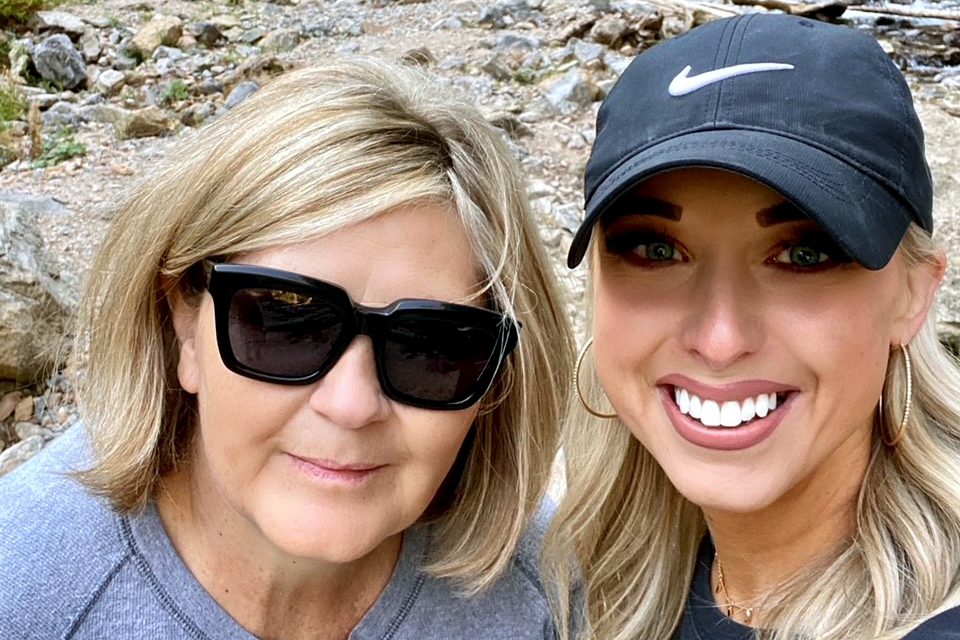Breadcrumb

Cassidy Kotobulavu found joy and purpose working as a nurse and nursing educator at Huntsman Cancer Institute. After learning her mother was diagnosed with metastatic breast cancer, Cassidy became the person learning procedure outcomes and holding her mom's hand during infusion treatments. Cassidy shares her experience dealing with being on the other side of the curtain.
Video transcript
Filmed in Fall 2020
I feel like now I can handle any challenge that you bring me. And I still have weak moments, but I do think that those challenges and those experiences have changed me and molded me into who I am now.
In 2015, I was happy working at the bedside and I loved my job being a nurse. One of my main mentors, Gigi Austria, came to me one day and said, "you know, have you ever thought about working in nursing education?" I was really just starting to get my feet wet in that job, and November came around of that year and my mom had gone to a dermatologist for some concerns. The dermatologist called and said, "this is actually not what we were thinking it was, it's actually breast cancer."
I had spent so many years up to that point taking care of oncology patients and pouring my heart and soul into caring for them. And I had this selfish moment feeling like, "Why me? Why do I now have to deal with this in my own personal life?"
She was diagnosed in November of 2015 with metastatic breast cancer. And was told that she had an incurable cancer, but it was very manageable and something that we felt strongly that we could treat. But that was at a time in my career where again, I had just changed professions and moved into the education route and was feeling a little, you know, uneasy in my job already because I was new.
But the support that I got from my nursing directors and from the rest of my team was just amazing. Because I was in this new position, but I was also supported in the fact that they said, "I know you have this meeting, but your mom's also down in infusion so why don't you skip the meeting and why don't you go down and spend time with her?" I was able to see that other side of the curtain, and that's the way I describe it to my nurse residents. And it really is, it's a completely different perspective than I had ever had before. I've suddenly become that family member who was down in infusion in the chair next to my mom waiting for her chemotherapy to finish and feeling really nervous and making sure she didn't react. And I was that family member, you know, in the operating room lobby waiting for her to finish surgery.
Watching the researchers, and the providers, the scientists, the bedside nurses, helps me realize that what we do here is going to help people like my mom. It's going to help patients out there who have gone through this cancer journey, but are still looking for future treatments and future improvements and innovation in science.
This November is my mom's five-year mark from diagnosis, which is so exciting. She's playing with my kids consistently and she's baking and doing all the things that she loves to do. Because I see these patients—sometimes at their worst and in their most vulnerable state in the hospital, it's great to come home and to see my mom thriving.
And knowing that she will forever be a cancer patient and forever be a cancer survivor, but to watch her live her life and do the things that she loves to do every single day, that's really inspiring. I have felt out of control many times. There have been times where I felt like I couldn't do it—where I was failing my mom or where I wasn't being a good nurse. I didn't have the mental capacity sometimes to be both roles—both caregiver and nurse educator at the same time at work. But again, with working here and knowing what we do and knowing how important it is, I think it's kept me going and it's reminded me that the stress I've gone through and those vulnerable moments are worth it, because I'm able to be there for my mom and it's also made me better at work.